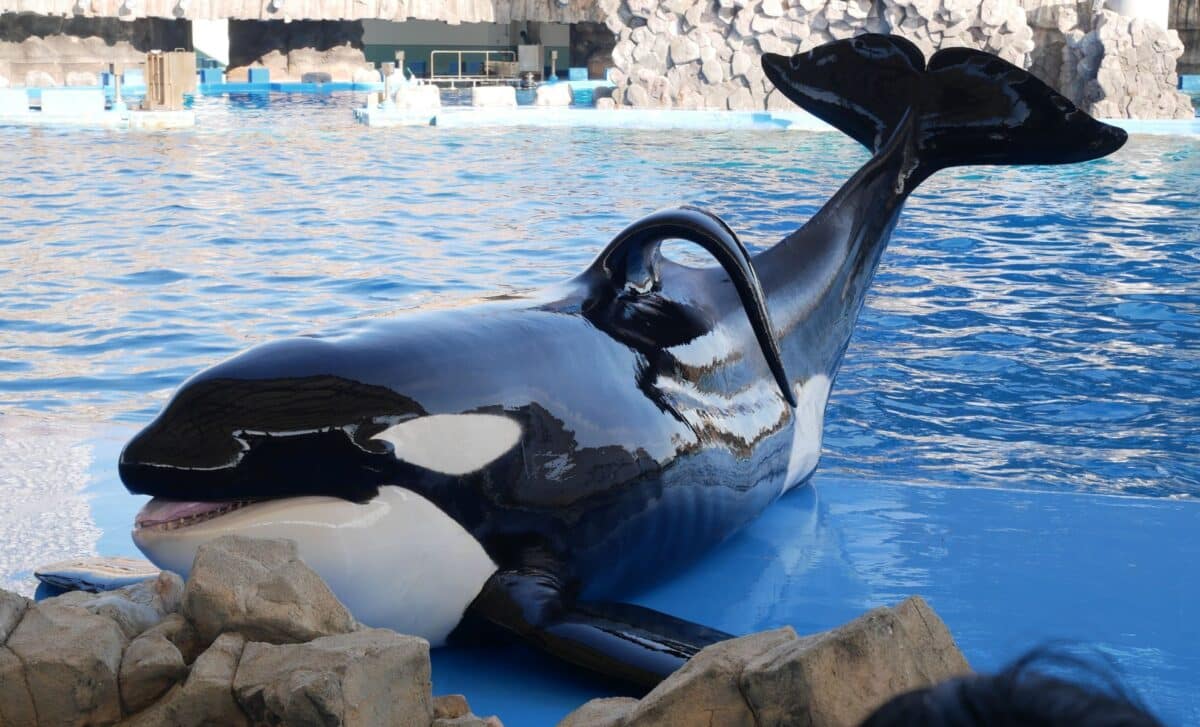In recent weeks, the name Jessica Radcliffe has been making waves across social media, tied to a shocking story of an orca attack during a live performance. The narrative has gripped countless viewers, claiming that a SeaWorld-style trainer was killed by a whale in front of a stunned audience, the harrowing details, allegedly captured on video, sparked widespread curiosity.
Real Tragedies That Inspired the Hoax
The story of Jessica Radcliffe’s alleged death follows a common viral hoax pattern. It spread through obscure blogs with blurry, manipulated videos, often recycled from unrelated events. These clips, slowed down and overlaid with dramatic captions, gained traction on social media and YouTube, where they were further exaggerated with dramatic voiceovers and AI imagery.
The power of repetition soon made the name “Jessica Radcliffe” trend across various platforms, and many began to repeat it like if it had been confirmed as a real story. Despite the compelling presentation, however, no credible evidence was found to support the existence of such an event.
Donald Trump’s Daughter Turns An Albanian Island Into A Secret Paradise
The Echoes of Real Tragedies
What makes her story particularly believable to many is its reliance on real, documented tragedies involving orcas in captivity. Their attacks on trainers have occurred in the past, with the most infamous being the 2010 death of SeaWorld trainer Dawn Brancheau killed by an orca named Tilikum. His death garnered international attention and was a focal point in the 2013 documentary Blackfish, which explored the ethics of keeping large marine mammals in captivity.
The 2009 death of Alexis Martínez, a Spanish trainer killed at Loro Parque in Tenerife by a whale named Keto, and the 1991 death of Keltie Byrne, a Canadian trainer who drowned after being dragged underwater by three , including Tilikum, at Sealand of the Pacific. These real events, often cited by those discussing orca attacks, make jessica’s story seem plausible to those who may not be fully aware of the facts.
The Cost of Spreading Misinformation
While the Jessica Radcliffe hoax may appear harmless, it poses significant risks by distorting public understanding of workplace dangers, particularly for trainers working with powerful animals like orcas. It also muddles important discussions on animal welfare and the ethics of keeping orcas in captivity. Such misinformation trivializes real-life tragedies, as it reduces the deaths of trainers like Dawn Brancheau, Alexis Martínez, and Keltie Byrne to mere entertainment.
The spread of this hoax also reflects a broader issue in today’s media landscape, distinguishing between fact and fiction . Misinformation can rapidly snowball, especially on platforms with no checks on content. The viral nature of the story highlights how quickly false claims can spread, often before the truth can catch up.
A Hoax with Real-World Impact
The false narrative surrounding Jessica Radcliffe’s death may have begun as an attention-grabbing clickbait story, but its consequences go beyond mere online drama. The viral hoax has inadvertently sparked renewed discussions about orca captivity, a topic that has garnered significant attention due to previous tragic incidents.
As these types of hoaxes continue to circulate, it’s crucial for individuals to approach sensationalized stories with a healthy dose of skepticism. While the lure of a gripping, dramatic narrative is strong, it’s essential to rely on verified sources and factual reporting when forming opinions, especially about sensitive subjects like animal welfare and workplace safety.







